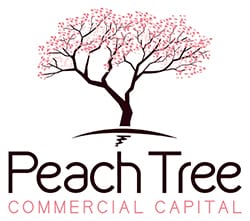When starting a business, one of the most significant challenges can be raising capital. Whether you’re trying to turn your idea into a reality or you’re hoping to infuse your current enterprise with cash, a small business loan can be a viable option over bringing on outside investors, selling property, taking a loan against personal assets or other means of raising capital.
Because these loans bring about an increased risk for lenders, they have many more requirements than a personal loan. So, with that in mind, we want to take a closer look at the elements necessary to qualify and obtain the money needed for your company.
While each lender will have its own requirements, most business loans require much of the same materials. Here’s a quick breakdown of what you should prepare before meeting with a lender. You must be ready beforehand – otherwise, you may be denied before the lender finishes reading your application.
Credit Score
If your company has been around for a little while, you’ll have a business credit score that the lender can see. For startups, they will pay attention to your personal score instead. If it’s relatively low, you may still get approved, but you’ll have to pay higher interest rates. As a rule, anything above 650 is okay.
Debt-to-Credit Ratio
While your total score provides some insight into your spending habits, lenders will want to scrutinize it a bit further. One critical element is your debt-to-credit ratio. This is the amount of money you owe compared to the total amount you can borrow.
For example, if you have three credit cards with a $5,000 limit, your total credit available is $15,000. If you’ve borrowed less than a quarter of it ($3,750), you’ll be in good standing. More than that and lenders will become a bit wary. A high DTC ratio suggests that it will be harder for you to repay your debts.
Collateral
Because of the risk involved with small business loans, lenders want assurances that you’ll pay the money back. In some cases, they will need to leverage collateral, just in case. This can include personal items like a car or house, or it can be business-related things like equipment or inventory. Ideally, you can break your financing needs into categories such as equipment financing, where the loan is leveraged against the equipment itself rather than your personal assets.
A loan against collateral is also known as a secured loan since the lender can seize the items specified if you default. In most cases, secured loans have more favorable rates.
Business Intent
When it comes to borrowing money, personal character can be almost as valuable as assets or credit history. If a lender believes that you can manage the loan and be smart about repaying it, you can often get more favorable terms.
One way to provide insight into your character is to showcase how you plan to spend the money. Perhaps it’s startup capital to get your business off the ground, or it’s necessary to expand operations to fulfill a newly signed contract. Giving these details to the lender can help your case, particularly if you can show the value of your plans.
Age of Your Business
Realistically, the best time to apply for a business loan is when you’re already in operation. Many lenders require applicants to have been open for at least a year, while some require two years before reviewing the loan. The reason for this is that you can provide insight into how your business is operating.
If things are looking good (i.e., a positive cash flow), then the lender will give you better rates. If it appears that the loan will be the only thing keeping your company afloat, they will want more assurances that you can repay.
Obtaining an SBA Loan
You may already be familiar with the Small Business Administration (SBA), a government organization that helps entrepreneurs get the funding they need to grow. SBA loans are a bit misleading, however. The SBA simply provides stability for the lender – it doesn’t actually give you money. Because of the way these loans are set up, they have slightly different requirements. Let’s break them down.
- Higher Age of Business – if your company has only been open for a year or less, you can’t apply for an SBA loan. On the low end, the organization requires at least two years of history. If you want a higher loan (i.e., $500,000+), you need to have three years.
- No Restricted Businesses – some industries are barred from getting an SBA loan, including casinos, mining, life insurance, and real estate. You can find the full list here.
- No Bankruptcies or Foreclosures – if you’ve had a bankruptcy or foreclosure (either personal or business-related) within three years, your loan application will be denied.
Contact Our team Today
While business loans are a helpful tool for growing your company, they are limited in scope. Fortunately, there are many alternative funding options available if you know where to look. We understand the needs of small businesses, and we can put you in touch with the right funding source to balance cash with risk and repayment terms. Call us to find out more and see what options are available to you.

